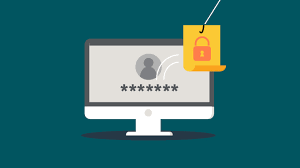The police are investigating a scam website that impersonates SupportGoWhere, a legitimate Singapore government portal that shows citizens what support schemes they’re eligible for.
The scam works by:
- Sending victims SMS links to a fake version of SupportGoWhere
- Requesting personal information and credit card details under the guise of “verification”
- Asking for bank two-factor authentication codes to “claim subsidies”
According to cyber-security firm Group-IB:
- The phishing campaign began in mid-December 2024
- It’s connected to 20 other fraudulent sites
- An additional 612 dormant sites are linked to the same criminals
- The same framework is being used for other scams (parking fines, delivery issues)
The Government Technology Agency acknowledged the issue and mentioned they have systems like ScamShield that disrupt hundreds of malicious websites daily, but some inevitably slip through.
Safety recommendations:
- Avoid scanning/clicking unknown QR codes or links
- Verify that government SMS messages come from the gov.sg sender ID
- Ensure government website URLs end with “.gov.sg”
- Report suspicious messages through ScamShield
This is a reminder to be vigilant about digital communications, especially those claiming to be from government agencies.
Analysis of Scams and Phishing in Singapore
Types of Scams Present in the Article
The article highlights several types of scams:
- Government Impersonation Scams: The primary scam involves impersonating SupportGoWhere, a legitimate government portal that helps citizens find relevant support schemes.
- SMS Phishing (Smishing): Scammers send SMS messages with malicious links to direct victims to fraudulent websites.
- Financial Data Harvesting: The scammers collect credit card details and banking information under the pretense of verification.
- Authentication Bypass: Requesting two-factor authentication codes to gain unauthorized access to victims’ accounts.
- Other Variations: The article mentions similar frameworks being used for fake parking OK payments and delivery issue resolution scams.

Phishing Issues
The phishing campaign demonstrates several concerning characteristics:
- Scale and Sophistication: With 20 active fraudulent sites and 612 dormant sites, this appears to be a well-organized operation with significant resources.
- Credible Impersonation: The scammers are effectively mimicking trusted government entities, increasing the likelihood that citizens will fall victim.
- Multi-channel Approach: Starting with SMS messages to direct victims to phishing websites shows tactical awareness of how to reach potential victims.
- Technical Infrastructure: The shared framework across multiple scam types suggests a reusable technical infrastructure, indicating professional cybercriminals rather than opportunistic amateurs.
- Timing: Launching during mid-December, possibly to coincide with year-end government payouts or benefits, shows strategic planning.
Possible Motivations
- Financial Gain: The primary motivation is likely direct financial theft through:
- Unauthorized credit card transactions
- Bank account access using stolen credentials
- Identity theft for longer-term fraud
- Data Harvesting: Personal information collected could be:
- Sold on dark web marketplaces
- Used for future targeted scams
- Leveraged for identity fraud
- Organized Crime: The scale suggests organized criminal groups that may be:
- Operating internationally but targeting Singapore specifically
- Part of syndicates that specialize in financial fraud
- Testing methods that can be replicated in other countries
- Exploitation of Trust: Singapore’s high level of public trust in government institutions makes government impersonation particularly effective.
Anti-Scam Resources in Singapore
- ScamShield App:
- Government-developed mobile application that blocks known scam calls and messages
- Available for iOS and Android
- Allows users to report suspicious messages and calls
- Anti-Scam Centre (ASC):
- Run by the Singapore Police Force
- Provides rapid intervention to disrupt scams and recover funds
- Contact: 1800-722-6688
- National Crime Prevention Council’s Scam Alert Website:
- Provides updated information on the latest scam variants
- Offers educational resources
- Website: scamalert.sg
- Banking Protections:
- Most Singapore banks have dedicated anti-fraud hotlines
- Some offer scam reimbursement guarantees under certain conditions
- Many have implemented transaction delays for suspicious transfers
- Report Channels:
- Police Hotline: 1800-255-0000
- Online reporting via police.gov.sg/i-witness
- Singapore Computer Emergency Response Team (SingCERT): singcert.org.sg
- Educational Initiatives:
- CSA’s SG Cyber Safe program provides public education
- The Inter-Ministry Committee on Scams coordinates public awareness campaigns
- “Spot the Signs. Stop the Crimes” campaign to educate the public on scam warning signs
- Technical Safeguards:
- SMS Sender ID Registry to reduce SMS spoofing
- The Scam Analysis and Tactical Intervention System mentioned in the article
- Government website domains are secured and monitored
If you’re a victim of such scams, immediately contact your bank to freeze accounts, report to the police, and file a case with the Anti-Scam Centre for possible fund recovery assistance.
Singapore’s Scam Landscape in the Global Context
Global Patterns vs. Singapore’s Experience
Singapore’s experience with scams reflects global cybercrime trends but with critical local variations:
- Global Sophistication, Local Targeting
- While sophisticated phishing techniques are used worldwide, Singapore-specific scams show detailed knowledge of local government programs (like SupportGoWhere), suggesting either local criminal involvement or thorough research by international groups.
- Trust Exploitation
- Singapore’s high trust in government (ranked among the highest globally) makes government impersonation scams particularly effective compared to countries with lower institutional trust.
- The “.gov.sg” domain carries significant credibility, making its impersonation valuable to scammers.
- Digital Adoption Factor
- Singapore’s near-universal digital literacy and smartphone penetration (approximately 92%) creates a large potential victim pool compared to less digitally advanced nations.
- The government’s digital-first approach to services means citizens are accustomed to conducting official business online.
- Financial Hub Targeting
- As a global financial center, Singapore experiences targeted attacks due to the perception of wealthy potential victims and sophisticated banking systems.
- International cybercriminal syndicates often prioritize Singapore alongside other financial capitals like London, New York, and Hong Kong.
Transnational Criminal Networks
The Singapore scam landscape connects to global criminal networks in several ways:
- Cross-Border Operations
- Many scams targeting Singaporeans originate from neighboring countries, particularly call centers in Southeast Asia.
- The “scam hub” phenomenon in places like Cambodia, Myanmar, and Laos has a direct impact on Singapore victims.
- Money Laundering Pathways
- Singapore’s role as a financial hub means fraudulently obtained funds often move through complex international channels before withdrawal.
- Cryptocurrency has become a preferred method for scammers to extract and launder funds internationally.
- Technical Infrastructure
- The “612 dormant sites” mentioned in the article suggest preparation for campaign expansion or rotation—a tactic used by global cybercrime groups to evade detection.
- Phishing kits and fraud-as-a-service offerings on the dark web enable less technical criminals to launch sophisticated attacks.
Singapore’s Distinctive Countermeasures
While facing global threats, Singapore has developed distinctive approaches:
- Public-Private Partnership Model
- Singapore’s Anti-Scam Centre works directly with banks and telecoms in a more integrated coordinated response model than many countries.
- The speed of intervention (sometimes within hours) exceeds typical international standards.
- Legislative Framework
- Singapore’s amendments to the Penal Code explicitly targeting online scams provide stronger legal foundations than many countries.
- The Online Criminal Harms Act gives authorities expanded powers to combat international scam operations.
- Regional Leadership
- Singapore leads ASEAN efforts on cybercrime cooperation, including cross-border enforcement initiatives.
- The Singapore Police Force provides training and capability building to regional partners.
- Technological Innovations
- Tools like ScamShield represent locally developed solutions that complement global security products.
- Singapore’s SMS Sender ID Registry was one of the first comprehensive attempts to address SMS spoofing globally.
The article’s description of a sophisticated phishing campaign targeting Singapore government services illustrates how global cybercrime tactics are adapted to local contexts. Singapore’s response demonstrates how national security measures must function within an interconnected global threat landscape.
Anti-Scam Help in Singapore
Government Resources
- ScamShield App: Developed by the Singapore government, this app blocks known scam calls and messages. It filters out scam messages and calls from phone numbers used in other scam cases.
- Anti-Scam Centre (ASC): Established by the Singapore Police Force, the ASC works with banks to freeze suspicious accounts and recover stolen funds. They’ve reported recovering millions of dollars for victims.
- National Crime Prevention Council’s Scam Alert Website: This website provides real-time updates on emerging scams and allows the public to report scams they encounter.
- ScamAlert Hotline: A dedicated 24-hour hotline (1800-722-6688) where individuals can verify suspicious messages or calls.
Financial Institution Support
- Bank Security Measures: Major banks have implemented cooling-off periods for first-time fund transfers to new recipients and lowered default transaction limits.
- OCBC’s Digital Security Notification Service: Alerts customers when suspicious transactions are detected.
- DBS’s Anti-Scam Suite includes features like “Funds Lock,” which allows customers to instantly freeze their accounts if they suspect they’ve been scammed.
Community Initiatives
- Scam Support Centre: This centre provides counseling and practical assistance to scam victims, helping them navigate the process of reporting and recovering from scams.
- Senior Digital Wellness Programme: Trains older adults to recognize and avoid digital scams.
- SG Cyber Safe Students Programme: Educates students about cybersecurity and scam awareness.
Recovery Process
If someone becomes a victim of a scam in Singapore:
- Report to the police immediately through the online Police Report portal
- Contact your bank to freeze accounts and attempt to recover funds
- Report the scam to the Anti-Scam Centre
- Preserve evidence including messages, screenshots, and transaction records
- Change passwords for all important accounts
- Seek support from the Scam Support Centre if needed
Singapore has made scam prevention a national priority, collaborating with government agencies, financial institutions, telecommunications companies, and community organizations to combat the rising threat of scams.
- Some scammers don’t hide their identity because they operate from outside victims’ jurisdictions.
Current Prevention Measures
- Singapore’s framework makes financial institutions and telcos accountable
- “Money lock” initiative by banks that prevents remote access to a portion of funds
- Anti-scam awareness campaigns (though these are often quickly outpaced by scammers)
Expert Perspective
Jorij Abraham, Gasa’s managing director, believes:
- It’s now “inevitable” that everyone will fall victim to scams at some point.
- Protection requires government and institutional involvement at an infrastructural level.
- Perfect prevention is impossible unless “you haven’t taken any risks and lived”
Prevention Methods

- Maintain healthy skepticism about online offers
- Carefully check website URLs
- Look for subtle differences in website design
- Never click on suspicious links
- Use two-factor authentication
- Keep software and security systems updated
- Be cautious about providing login credentials
- Verify website authenticity before entering personal information

General Scam Prevention Tips
- Trust your instincts
- If an offer seems too good to be true, it probably is
- Keep personal and financial information confidential
- Stay informed about the latest scam techniques
- Report suspicious activities to authorities
- Educate family members, especially older relatives
- Use secure, updated technology
- Maintain a healthy level of skepticism online

Maxthon
Maxthon has set out on an ambitious journey aimed at significantly bolstering the security of web applications, fueled by a resolute commitment to safeguarding users and their confidential data. At the heart of this initiative lies a collection of sophisticated encryption protocols, which act as a robust barrier for the information exchanged between individuals and various online services. Every interaction—be it the sharing of passwords or personal information—is protected within these encrypted channels, effectively preventing unauthorised access attempts from intruders.
 This meticulous emphasis on encryption marks merely the initial phase of Maxthon’s extensive security framework. Acknowledging that cyber threats are constantly evolving, Maxthon adopts a forward-thinking approach to user protection. The browser is engineered to adapt to emerging challenges, incorporating regular updates that promptly address any vulnerabilities that may surface. Users are strongly encouraged to activate automatic updates as part of their cybersecurity regimen, ensuring they can seamlessly take advantage of the latest fixes without any hassle.
This meticulous emphasis on encryption marks merely the initial phase of Maxthon’s extensive security framework. Acknowledging that cyber threats are constantly evolving, Maxthon adopts a forward-thinking approach to user protection. The browser is engineered to adapt to emerging challenges, incorporating regular updates that promptly address any vulnerabilities that may surface. Users are strongly encouraged to activate automatic updates as part of their cybersecurity regimen, ensuring they can seamlessly take advantage of the latest fixes without any hassle.
In today’s rapidly changing digital environment, Maxthon’s unwavering commitment to ongoing security enhancement signifies not only its responsibility toward users but also its firm dedication to nurturing trust in online engagements. With each new update rolled out, users can navigate the web with peace of mind, assured that their information is continuously safeguarded against ever-emerging threats lurking in cyberspace.
